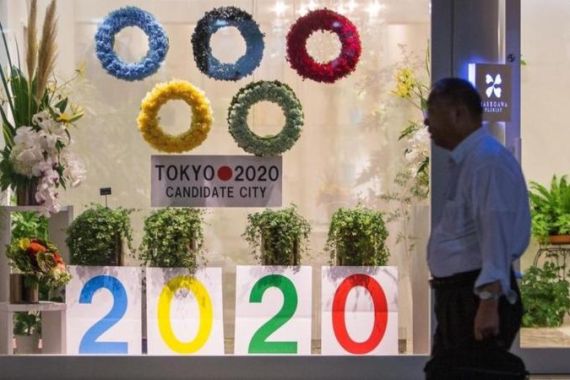Tokyo and Istanbul vie for 2020 Olympics
After two years of intense lobbying, Tokyo and Istanbul wait for IOC results, following Madrid elimination.

After two years of intense lobbying and tens of millions of dollars spent by candidate cities, the International Olympic Committee is set to choose between Istanbul and Tokyo regarding who will be entrusted with hosting the 2020 summer Games.
The two cities had 70 minutes each to present their bids on Saturday to the about 100 members of the IOC. Ninety-seven were eligible to vote in the first round in Buenos Aires, which saw Madrid eliminated.
Istanbul presented first in front of the IOC, followed by Tokyo and then Madrid in an order decided by a draw two years ago.
Each city rolled out the big guns, with Japanese Prime Minister Shinzo Abe representing his capital city, his Turkish counterpart Recep Tayyip Erdogan backing Istanbul, and Prince Felipe of Spain part of Madrid’s official presentation.
IOC members then heard a report from an internal Evaluation Commission formed of IOC members and Olympic experts, before initial voting began.
No clear favourite
After neither Istanbul nor Tokyo emerged with an outright majority of votes in the first round, Madrid was eliminated and the two remaining cities went ahead to a head-to-head second round.
With no clear favourite, the decision was likely to hinge on the appeal of the bid presentations, as each city attempted to gloss over troubles at home.
Madrid continues to suffocate under a recession, Istanbul is saddled with the spectre of military strikes in neighbouring Syria and internal unrest, and Tokyo is back in the headlines after a series of damaging disclosures about the crippled Fukushima nuclear plant 230km from the city.
Publicly, the membership of the International Olympic Committee is smiling through the crisis, but privately many concede that this is now an exercise in evaluating risk rather than celebrating sport.
Madrid pitched a manageable, low-cost, financially responsible Games, but saw its bid fail at the first hurdle.
Games expenditure
While Madrid had promised to cut costs, Istanbul presented a massive non-Games budget of around $17bn, dwarfing expected Games expenditure of $2.9bn. Tokyo, which hosted the Games in 1964, is also planning to incorporate existing venues and has estimated a non-Games budget of around $4.4bn compared to $3.4bn for the actual event.
Istanbul launched its bid on the back of an Islamic card, of becoming the first Olympics in a predominantly Muslim country and the first staged across two continents simultaneously – Asia and Europe.
During our presentation, I look forward to conveying Tokyo's safety, strong finances, world class transportation and organisational ability
Tokyo wants to show that it is back, showcasing a new energy and dynamism after two lost decades, by hosting the 2020 Games.
The bid team points to a $4.5bn war chest already in the bank, with further support as needed promised by the government. “The Games are in a safe pair of hands,” Tsunekazu Takeda, head of the Japanese Olympic Committee, said.
But disclosures in recent weeks about the crippled Fukushima nuclear plant 230km from Tokyo were an unwelcome shock to an Olympic membership not appreciative of surprises.
The plant’s operator has been forced to reverse denials and admit that hundreds of tonnes of radioactive water are pouring into the Pacific Ocean each day, and radiation levels have spiked.
Abe’s government has said it will spend almost half a billion dollars to try to fix the water crisis.
“During our presentation, I look forward to conveying Tokyo’s safety, strong finances, world class transportation and organisational ability,” Tokyo governor Naoki Inose told reporters.